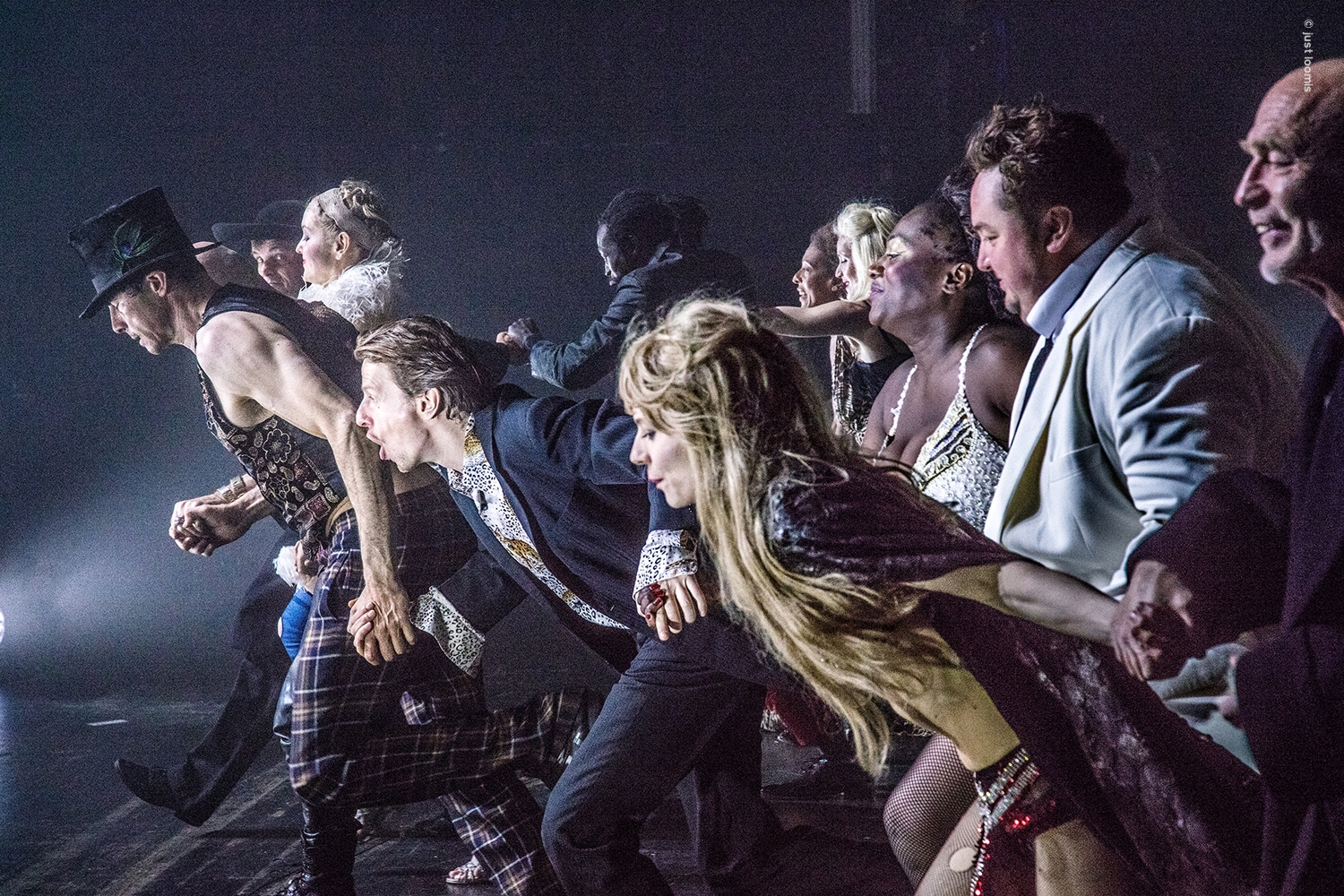


History has come to an end, it is claimed at the beginning of the play. Yet the characters still seem to be trapped in the story. For the last one hundred years, the protagonists in Chekhov’s Uncle Vanya have not stopped wearing themselves out, blaming each other’s shortcomings. The servant rebelled against the master, but to no avail. The master is alive and life goes on as before. Only the prospect of future changes has now gone for good. Pawel Demirski starts from the end, exploiting the anarchic potential of the comic. The losers of the transformation processes in a non-negotiable neo-liberal economy are well aware of their precarious situation – but what’s the use? What have they learnt? History repeats itself, yes – but fairly and squarely as farce, as a comedy and play.
In Chekhov’s play, the respectable “professor” has already made up his mind to sell the country estate – home to all the protagonists -, but after Uncle Vanya’s half-heartedly carried out murder attack, he changes his mind and departs. All’s well that end’s well? There is no money left, everyone kind of feels like a loser, and they all fight the new realities tooth and nail. The professor, however, has the reputation of being a leading authority in the field of economy. He made a fortune by cultivating diamonds from coal, or maybe he had just enough dough to set up a business and trade in diamonds - nobody knows for sure. But either way, his speedy return is now eagerly awaited. They keep rushing to the train station, but nobody ever gets off the train. Again and again, the whole thing proves to be nothing but a farce. ‘Waiting for the professor’ has become an act of playing, an end in itself. In the very end, Sonya, the professor’s daughter, is determined to accomplish what her father had not been able to do eighteen (or was it a hundred?) years ago: to convert the estate into cash. Yet the search for the crucial documents only brings to light an ugly fraud…
Pawel Demirski consistently renders Chekhov’s philosophical situational description as an enforced theatrical play. It is the first German-language performance of a play by the Polish author, who is ranked among the most important contemporary playwrights in his country. The director, Wojtek Klemm, has been producing in Germany, Israel, and Poland since 2005. At Volksbühne Berlin he directed “1-2-3 Berlin” last year.
With: Martin Butzke, Tobias J. Lehmann, Anne Ratte-Polle, Gabriele Völsch, Axel Werner, Micha Kaplan (Musiker) and Jacob Thein (Musiker)
Director: Wojtek Klemm
Stage Designer: Mascha Mazur
Costumes: Katharina Jockwer
Music: Micha Kaplan
Dramaturgy: Ralf Fiedler, Johanna Höhmann